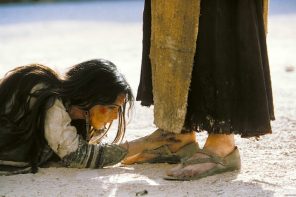Ten Questions for Winnifred Fallers Sullivan on Prison Religion: Faith-based Reform and the Constitution
(Princeton University Press 2009)
What inspired you to write Prison Religion? What sparked your interest?
After publishing The Impossibility of Religious Freedom, I had decided not to do any more expert-witnessing in religion cases. I was just not sure that I could be helpful. But when Alex Luchenitser, the lead lawyer for the plaintiffs in the Iowa prison case, called, I couldn’t resist. He told me that the case concerned a faith-based prison rehabilitation program in Iowa and that the program actually ran the entire wing of an Iowa state prison—where prisoners spent eighteen months. After some discussion of what I might be able to contribute, I agreed to serve as an expert. I thought I could help the judge to understand what was religious about the Iowa program. I did not decide to write the book until the trial was over, though, when I found myself reflecting on how such a book might make a useful pair with my previous one, showing how disestablishment is also impossible.
What’s the most important take-home message for readers?
This book analyzes the record in a federal trial challenging the constitutionality of a faith-based prison rehabilitation program in an Iowa prison: Americans United v. Prison Fellowship Ministries. The plaintiffs in the case argued that a residential program that advertises itself as “Bible-based” and “Christ-centered,” and requires prisoners to memorize Bible passages and learn to apply them to their lives, violates the establishment clause of the First Amendment to the US Constitution.
The judge agreed, describing the program, InnerChange Freedom Initiative, as a state-sponsored program of forced conversion. The book presents the testimony of the witnesses in the case and sets that testimony in the context of American penal and religious history. It addresses the convergence of two distinctive features of the United States: a place where a higher percentage of its population is incarcerated than anywhere else in the world, and a place that is often described as very religious. Prison and evangelical religion have been linked throughout US history. Both are fundamental to US identity. Is their union an establishment of religion? What is the alternative?
Anything you had to leave out?
Some people have suggested that I should have spent more time talking about my own experience as an expert witness. I wanted this book to be about the prisoners. But I do think that there is a lot of misunderstanding about the role of expert witnessing, particularly in cases involving cultural evidence. I teach Evidence Law to law students and I hope to write more about these issues in the future.
What are some of the biggest misconceptions about your topic?
As many people have pointed out, the words “separation of church and state” do not appear in the Constitution. That comes as a surprise to many Americans. It reveals a kind of popular Constitutional understanding that exists alongside the actual words. Not only are the words not present in the text, a strong argument can be made that “church” and “state” are not actually separate in the United States. This country has a distinctive religio-legal culture resulting from the prevalence of the free church model—particularly when compared to the church-state regimes of most European countries—but it is not a very secular place. I am one of a group of scholars of law and religion in the United States who have been working to find better ways to describe the nature of the intersection between the two.
Did you have a specific audience in mind when writing?
I always try to write for an intelligent reader who is not a specialist. I try to write for my mother. She is an appreciative but critical reader! Beyond that, I try to write for both a legal studies and a religious studies audience, hoping, in some sense, to act as go-between for these two very different conversations.
Are you hoping to just inform readers? Give them pleasure? Piss them off?
I hope that I will interest readers in the religious lives of prisoners in this country and the similarities of those lives with their own lives.
What alternate title would you give the book?
I wanted to call it A Prison Like No Other, which is the title of one of the brochures produced by Prison Fellowship Ministries, or Reforming the Secular. Some of my friends wanted to call it The God Pod, the name given to the prison wing in which this program existed by the other prisoners. Saner heads prevailed. I think the final title gives a better sense of what the book is actually about.
How do you feel about the cover?
I love the cover. The photo was one that had been published in the Des Moines Register when the program was initiated. The Princeton designer did a great job incorporating the photo into the design of the cover, in my view. Books about this topic almost always have a church and a courthouse on the cover!
Is there a book out there you wish you had written? Which one? Why?
There are two short books I really admire: The Garden and the Wilderness by Mark deWolfe Howe; a beautifully-written book that does a better job than any other I know of showing the interrelationship over time of religion and law in the United States, of how law and religion shape each other in this country. And The French Revolution and The Church by John McManners, which narrates the remarkable changes to the French Catholic Church over the time of the Revolution. Both books bear repeated readings.
What’s your next book?
Spiritual Governance: The New Establishment of Religion. It is about the bureaucratic regulation and licensing of spiritual care and chaplaincies by various parts of the state and federal governments.




